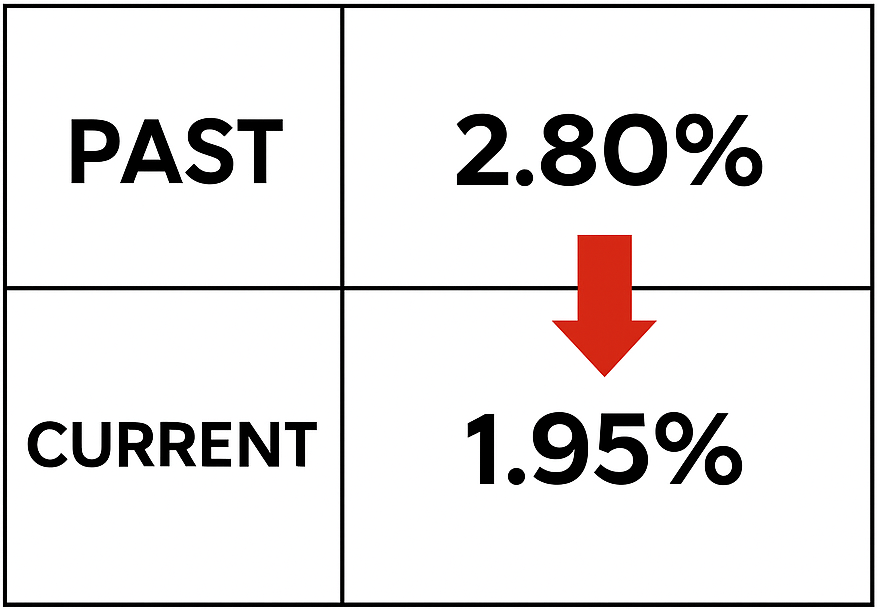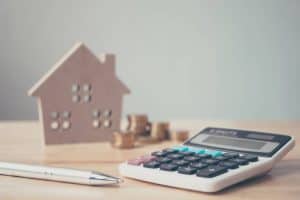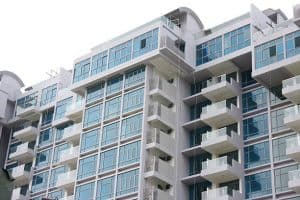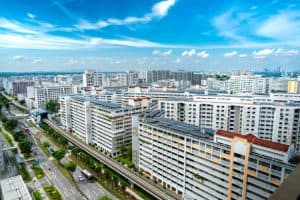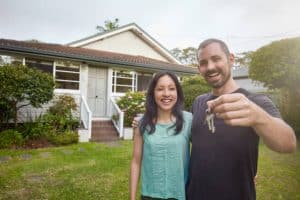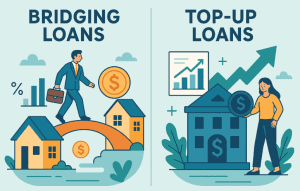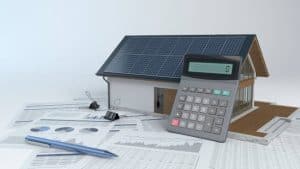Thinking about investing in a rental property but not sure what kind of returns you can actually expect in Singapore? You’re not alone. On paper, rental yields can sound promising — but what happens when you factor in loan repayments, stamp duty, renovations, and the occasional empty month?
In this case study, we’ll walk you through a realistic ROI breakdown of a typical 2-bedroom condo in 2025. You’ll see the actual numbers — from gross rental yield to net ROI after costs — and get a clear sense of what a solid investment really looks like.
Why Case Studies Matter for Property Investors

When it comes to property investment, the theory only gets you so far. You can read all the guides and formulas you want — but without real-world examples, it’s hard to know how those numbers actually play out.
That’s why rental property ROI case studies are so valuable, especially in a high-cost, high-stakes market like Singapore.
The Importance of Real Examples When Calculating Returns

You’ve probably seen the formula for rental yield Singapore a dozen times by now. But how many articles actually walk you through a real scenario — with actual rent figures, mortgage repayments, stamp duty, and ongoing costs included?
Real examples:
- Show you how yield and ROI differ in practice
- Help you avoid overestimating profits
- Give you realistic benchmarks for your own property search
That’s the goal of this case study — to give you real numbers, not vague estimates.
What ROI Means Beyond Rental Yield

Rental yield is just one piece of the puzzle. Your Return on Investment (ROI) takes a broader view — it includes your total capital outlay (e.g. downpayment, buyer stamp duty, renovation) and how much you’re actually earning after all recurring costs.
Here’s why ROI gives a clearer picture than yield alone:
- Rental yield is based on property price, not total cash invested
- ROI considers your net income vs upfront capital
- It helps you compare different types of investments more fairly
In other words: yield shows income efficiency, ROI shows total return performance.
How This Case Study Can Help First-Time Investors in Singapore

If you’re new to property investment, this case study was written with you in mind. It strips away the fluff and gives you a full breakdown of:
- What kind of condo unit we’re analysing
- Actual monthly rental income
- Holding costs like housing loan repayments, vacancy risk, and fees
- Final ROI based on realistic assumptions
Whether you’re eyeing a resale condo, a new launch, or even an EC, this guide will help you answer the big question:
“Is it worth it?”
Let’s dive into the numbers.
Case Overview – Property Profile & Assumptions

Before we crunch the numbers, here’s what we’re working with. This case study is based on a common investor scenario — someone buying a 2-bedroom condo for rental in 2025 using a typical mortgage structure.
Type of Property, Size, and Location (e.g., 2BR Condo in District 15)

We’ll be looking at a 2-bedroom private condo located in District 15 (East Coast/Katong). This area is known for strong rental demand, access to good schools, and proximity to the city without CCR-level prices.
Property specs:
- Type: Private condo (non-landed)
- Size: ~700–750 sq ft
- Purchase Price: ~$950,000 (based on recent resale prices in East Coast in 2025)
This type of unit attracts young couples, small families, or expatriates — all of whom are active in the rental market.
Financing Method: Bank Loan vs HDB Loan vs Cash
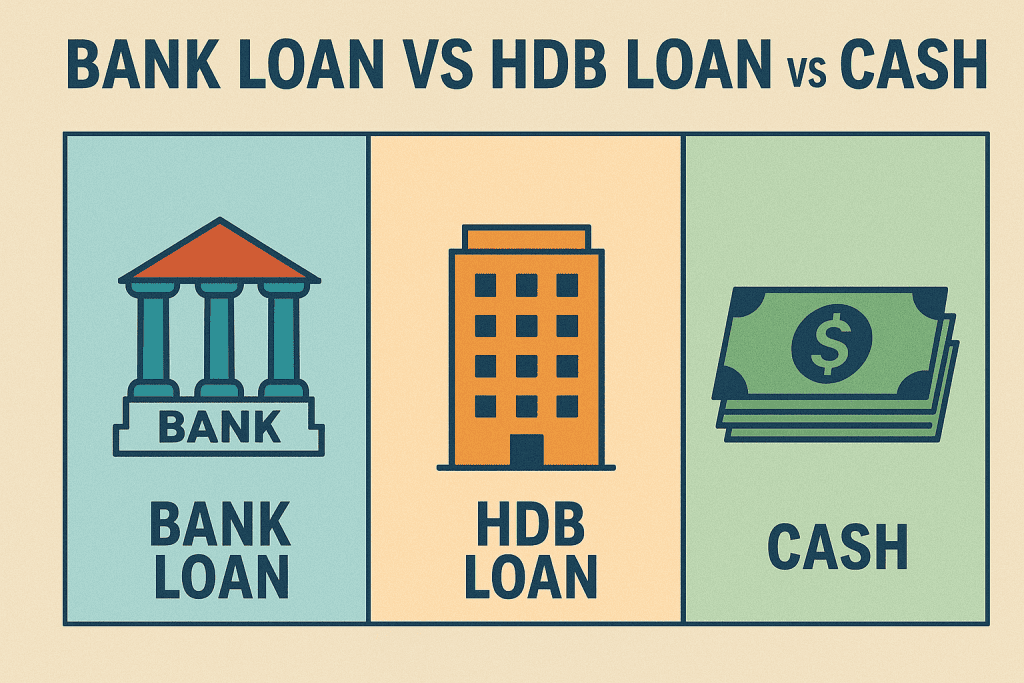
For this case study, we’ll assume the buyer is financing the property using a bank loan, which is typical for private condos in Singapore.
Loan assumptions:
- Loan amount: 75% of property price = ~$712,500
- Tenure: 25 years
- Interest rate: 3.3% (average for fixed home loan rates in Singapore mid-2025)
Note: HDB loans are not applicable here since it’s a private property. Cash purchases are rare and typically lower ROI due to high upfront capital.
If you want to compare financing options for HDB flats or executive condos, check out:
Rental Market Conditions in 2026 (Monthly Rent, Vacancy Buffer)

In 2026, Singapore’s rental market remains firm, though not as red-hot as the pandemic peak in 2022–2023. For a 2-bedroom condo in District 15, average monthly rent is holding steady around $3,200, based on recent listings on 99.co and EdgeProp.
But here’s the part many overlook: vacancy.
Even in a strong market, you can’t assume full occupancy year-round. For this case study, we’re factoring in:
- 11 months occupancy
- 1 month of vacancy buffer annually
- Giving us a realistic annual rental income of $35,200
Pro Tip: A high rent doesn’t guarantee great returns if your costs are high. That’s why ROI — not just rental yield — gives a fuller picture.
Want to explore financing strategies that keep your holding costs low? You might want to compare a DBS home loan package (popular for fixed rates) or look into HDB home loan options if you’re investing in public housing instead.
Both come with different pros, cons, and eligibility — and they will impact your final ROI.
ROI Calculation Breakdown – Gross and Net Yield

Time to run the numbers. Yield and ROI aren’t just buzzwords — they’re essential tools for evaluating whether your rental property is truly profitable. And trust us, once you break it down, you’ll see why a 3.5% yield isn’t always “good enough.”
Let’s go step-by-step.
Gross Rental Yield Based on Purchase Price

Gross rental yield is the most basic calculation — and also the one most people (and agents) quote.
Formula:
(Annual Rental Income / Purchase Price) x 100
Example:
- Monthly rent: $3,200
- Annual rent (11 months): $35,200
- Purchase price: $950,000
👉 Gross Rental Yield = ($35,200 / $950,000) × 100 = 3.7%
Not bad on paper. But this doesn’t tell the full story.
Net Rental Yield After Loan Interest, Taxes & Fees

Net yield gives a clearer view of your actual return — factoring in ongoing costs like:
- Monthly mortgage repayments
- Property tax
- Maintenance fees / sinking fund
- Insurance
- Vacancy buffer
Assuming:
- Monthly loan repayment: ~$3,500 (based on a DBS home loan or similar at 3.3%)
- Maintenance, tax, misc: $350/month
You’re left with:
- Net annual rental income = ~$15,800
- Net Yield = ($15,800 / $950,000) × 100 ≈ 1.66%
Pro tip: Net yield under 2% is common — which is why ROI is more useful.
ROI After Renovation, BSD, and Holding Costs

To calculate true ROI, we need to include all upfront cash outlay, including:
- 25% downpayment = $237,500
- Buyer’s Stamp Duty = ~$23,100
- Legal & agent fees = ~$4,500
- Renovation/furnishing = ~$30,000
Total capital outlay = $295,100
With a net annual return of $15,800:
ROI = ($15,800 / $295,100) × 100 = 5.35%
This is your true ROI — and it’s a much better benchmark for comparing investments.If your ROI is below 4%, you may want to look into cheaper units, higher rental areas, or better financing like a lower-rate UOB home loan.
What Affects ROI – Key Takeaways from the Numbers

Now that you’ve seen the math, let’s break down what actually makes or breaks your rental property ROI in Singapore. It’s not just about how much rent you can charge — financing, taxes, and even a vacant month or two can seriously shift your returns.
Understanding these factors will help you optimise your purchase — or at the very least, avoid nasty surprises.
The Impact of Loan Tenure and Interest Rate

Your loan structure is one of the biggest levers in your ROI.
- A shorter loan tenure = higher monthly repayments but less interest paid overall
- A longer tenure = better cash flow, but more interest over time
And don’t underestimate how much that interest rate matters. Just a 0.5% difference can swing your net yield significantly.
Example: On a $700K loan, switching from 3.5% to 3.0% can save you over $150/month in repayments.
Use a mortgage loan repayment calculator to model your best case.
Tip: If you’re comparing bank rates, a mortgage broker in Singapore can help you find the best options — from DBS, UOB, or OCBC.
How Vacancy, Renovation, and Stamp Duty Change Returns

Let’s say your rent is great — but then you get hit with:
- 2 months of vacancy
- A $40,000 reno budget
- Higher Buyer’s Stamp Duty due to a larger purchase
All of these can drag your ROI down below 4%, even if your yield looked good upfront.Expert tip: Budget at least 5% of your purchase price for reno + stamp duty costs if you’re buying older resale condos or larger units.
Comparing ROI with Other Properties or Areas

This is where context matters.
A 5.3% ROI for a condo in Marine Parade might seem great… until you find out a similar-sized HDB flat in Bukit Batok nets 6.2% with much lower capital outlay.
That’s why it’s smart to:
- Compare ROI across HDB vs Condo
- Check URA and 99.co rental trends for up-to-date benchmarks
- Use internal links to compare across our HDB loan and condo loan guides
Reminder: Your ROI target will also depend on your strategy — passive cashflow, long-term capital gain, or a hybrid.
Want to know which areas offer the highest ROI today? Head over to our Top Locations to Invest in Rental Property in Singapore guide for a deep dive
Final Verdict – Is This a Good Investment?

So, is this 2-bedroom condo case study a profitable investment in Singapore’s 2025 market?
Well — yes, but it depends on your strategy. While the net ROI hovers around 4–5%, the real upside could lie in capital appreciation if you hold long enough. But only if your entry price is right and you’ve structured your loan smartly.
Would a Similar Property Still Be Viable in 2026?

If you’re eyeing a resale condo in a mature estate like District 15, this case shows the numbers can still work — especially with strong rental demand and limited new launches in prime areas.
But yields may be compressed in the next 6–12 months due to higher interest rates and increased supply of new units. Your best bet? Run the math based on today’s rental benchmarks and be conservative with rent estimates.
When to Refinance or Hold for Capital Gains

If you already own a similar unit and your current loan rate is creeping past 3.5%, it might be time to refinance your home loan for better monthly savings.
Alternatively, if you bought low and the market’s peaked, holding for long-term capital gains — especially if you’re in year 6+ of ownership — might outperform rental returns.
Don’t forget to explore reprice vs refinance strategies if you’re on an older bank package.
Speak to a Mortgage Advisor Before You Commit

Before making a move, always run the full yield, cost, and ROI projection — ideally with a trusted mortgage advisor in Singapore who can:
- Compare rates across banks (DBS, UOB, OCBC, etc.)
- Help you estimate BSD, legal fees, and loan interest
- Spot opportunities to refinance, reprice, or restructure
Your property might be a great investment on paper — but it’s your financing and cost structure that determines whether it pays off.
Explore More Guides & Tools

Learning from a case study is great — but combining that with practical tools and bite-sized guides is how savvy investors stay ahead. Whether you’re just starting out or refining your portfolio, here’s what to read next:
How to Calculate Rental Yield in Singapore

Not sure if you’re doing the numbers right? Our step-by-step guide breaks down gross vs net rental yield, formulas, and what a “good yield” really means in 2026.
👉 Read: How to Calculate Rental Yield in Singapore
Full Cost Breakdown of Owning Rental Property
Before you jump in, know exactly what you’re paying. We cover property tax, loan interest, maintenance, and more — even the sneaky ones first-time landlords forget.
How to Invest in Rental Property in Singapore

If you want a full roadmap from property selection to financing, yield analysis, and tax tips — this is your go-to starting point.
👉 Start here: How to Invest in Rental Property in Singapore


